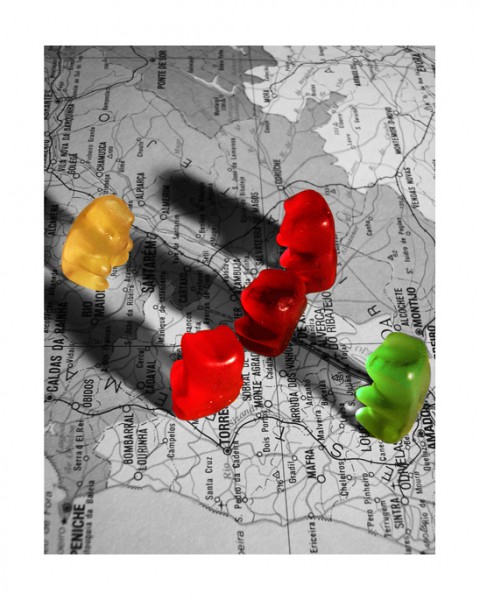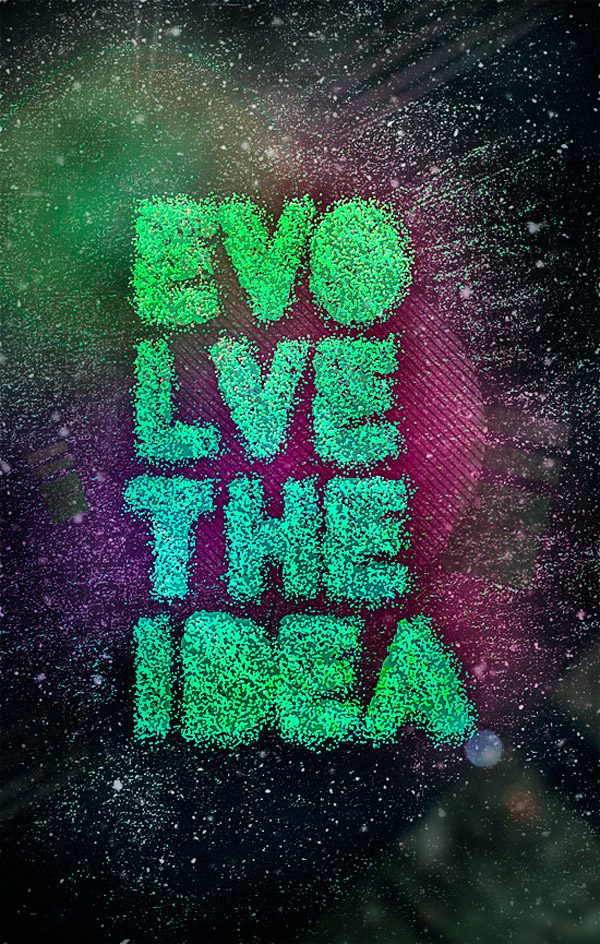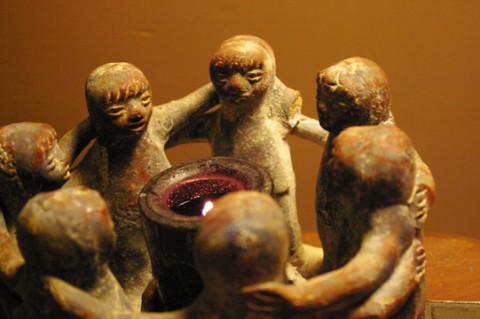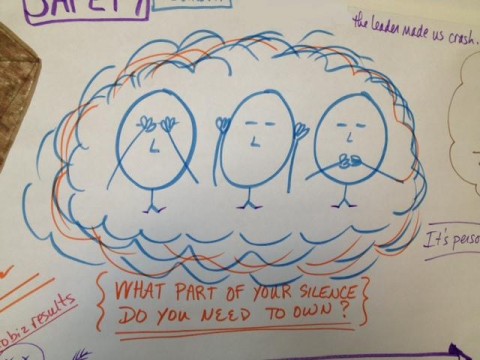September 17, 2012

Beth O’Neill, of Interaction Associates recently led a session on Neuro Linguistic Programming (NLP). It’s the only thing she has seen in her many years as a coach and consultant that actually helps people change beliefs. NLP gets at the deep structure of what we’re trying to communicate, rather than focusing on what comes out at surface structure of our communication. It explores how our thoughts, actions and feelings work together right now to produce our experience. It’s a practical way to get at the unconscious, looking at what’s running our patterns, and creating opportunities for us to make conscious changes that bring forth the outcomes we seek.
Read More
September 7, 2012

If you’ve been reading Curtis’ blog posts this week, you might be considering what it means to be an evolutionary. If you live in or near Boston, you should join us as we deepen this conversation.
Our friends at EnlightenNext Boston are hosting a dialogue between Amy Edelstein, senior teacher of Evolutionary Enlightenment and myself this Friday, September 21, 7:15pm – 9:30pm at Samadhi Integral in Newton Centre.
Read More
September 3, 2012

Happy 130th Birthday, [Organized] Labor Day!
On this Labor Day, let’s remember its origins in the ranks of organized labor. But first, a look at which workers we’re celebrating today.
Who’s unionized now? (Source: Huffington Post: Labor Day History: 11 Facts You Need to Know)
Service station attendants 96,000
Musicians, singers and related workers 179,000
Bakers 183,000
Pharmacists 232,000
Firefighters: 258,000
Chefs and head cooks: 281,000
Taxi drivers and chauffeurs 286,000
Hairdressers, hairstylists and cosmetologists: 718,000
Farmers and ranchers 825,000
Teachers 6.5 million
Not to mention health care workers, police and many other professions.
Read More
August 21, 2012

I’ve been meaning to tell you about Creative Change; the powerful intersection of artists and activists that has been taking place for the last four years. The Opportunity Agenda convenes the retreat, and I have had the privilege of designing and facilitating since its inception. This last retreat was the best one yet.
Read More
August 8, 2012

|Photo by Siew Yi Liang|http://www.flickr.com/photos/sonictk/361505937|
One of the comments that often comes up in our popular workshop, Facilitative Leadership goes something like this, “It’s great that I’m learning all of these practical leadership and facilitation skills, but what happens when I’m not the one leading or facilitating?” How can we keep things rolling when we aren’t formally in charge and when formal leadership is not so skillful. My answer today: there’s always an opportunity to lead, ask good questions, facilitate from the chair! Read More
July 9, 2012

We spend a lot of time at IISC thinking about how to talk about and practice love as a force for social change. Mike Edwards claimed in 2003 that “that the future of our world depends on how successful we are in developing and applying a new social science of love… applied in and through the systems that are essential to the functioning of all successful societies…[This kind of love is best illuminated by Rev. Dr.] Martin Luther King’s philosophy of the “love that does justice”, signifying the deliberate cultivation of mutually-reinforcing cycles of personal and systemic change…
Read More
July 3, 2012

Last Thursday we celebrated almost 20 years of visionary leadership by our founding executive director, Marianne Hughes. Today we welcome Ceasar McDowell as the new President of the Interaction Institute for Social Change.
Read More
June 14, 2012

|Image by Seth Waite|http://www.flickr.com/photos/28674126@N02/4316157064|
“Society, community, and family are all conserving institutions. They try to maintain stability and to prevent, or at least to slow, change. But the modern organization is a de-stabilizer. It must be organized for innovation and innovation, as the great Austro-American economist Joseph Schumpeter said, is “creative destruction.” And it must be organized for the systematic abandonment of whatever is established, customary, familiar, and comfortable, whether that is a product, service, or process; a set of skills; human and social relationships; or the organization itself. In short, it must be organized for constant change.”
-Peter Drucker, “The New Society of Organizations” (1992)
June 5, 2012

Last week we started to take a look at Kevin Kelly’s take on the benefits of swarm systems. We are wondering what are the implications for movement builders. We looked at how important it is for us to be adaptable.
Kelly also says that swarm systems are evolvable. He says that these are:
Read More
May 15, 2012

I’m just coming out of a mind bending, heart expanding retreat with Orland Bishop, Rachel Bagby and the Barr Fellows Network. It was one of those experiences that is hard to put into words. For lack of a better word, and I hope Orland doesn’t mind this, it was more like being with a shaman than with a facilitator.
Orland led us in an exploration of intention and attention as he invited us to question how we relate to reality itself. He led with the idea that our relationships – and therefore our human experience – can be radically redefined if we make it our purpose to truly understand the other; and to do it with radical acceptance.
Read More
April 25, 2012

Last weekend I had a most unique privilege. I facilitated the final retreat of a three-year process. I have been working with the Barrboletas, the Barr Fellows cohort of 2009, since their inaugural learning journey to Brazil in June of that year. We have a book worth of documentation. The fellowship as a whole will be highlighted in the May issue of the Stanford Social Innovation Review. This post is a celebration of their last retreat as a cohort – they will continue to participate in an exciting plethora of network activities as they are moved and able.
Read More
April 3, 2012

I caught this drawing posted among many other charts in IISC Learning Center. It caught my attention. I have long been familiar with the idea that silence equals complicity. But I always applied it to movement and our work for justice. I never quite thought of it as applying to organizational dynamics.
Read More











